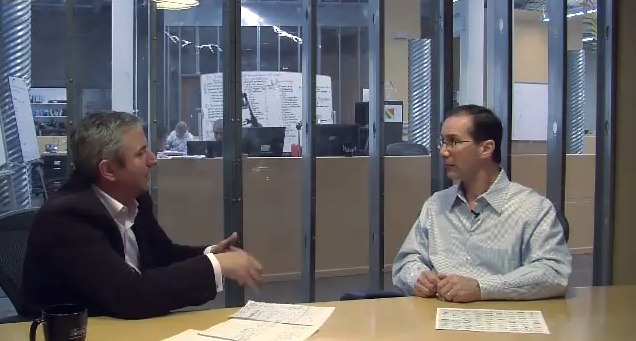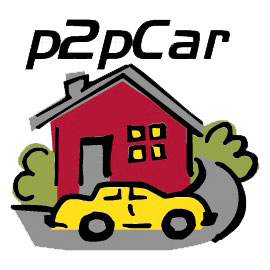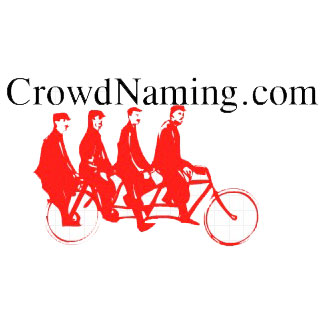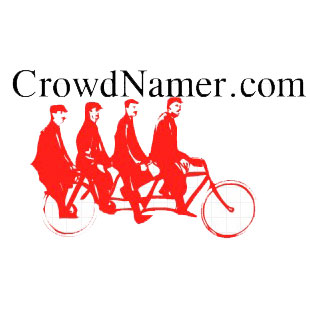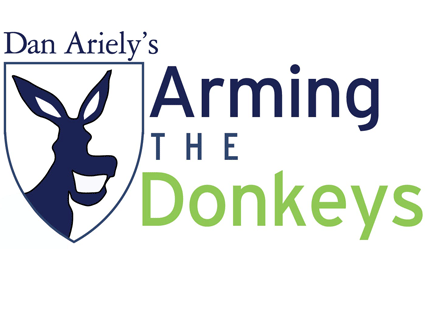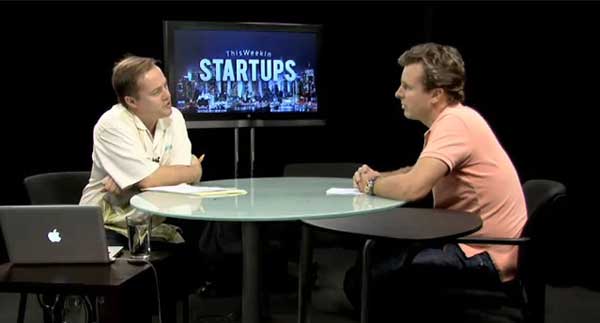For the purposes of this little experiment I scored all names- company, personal, and game, similarly- from a branding perspective.
Obviously a CEO or VC doesn’t have to care whether he’s got the exact match .com and Twitter handle, but it is safe to assume they’d probably want them, and if they had them, it would make it easy to find them. I didn’t include Facebook, because honestly, I don’t fully get Facebook from a branding perspective yet.
I’d also note that the app/game space seems to be an ecosystem unto itself and plenty of business is getting done without the matching domain name, although again, I bet they wish they had them.
Exact match company name, dot com, and Twitter handle scores an A.
Bonus (+) factors:
Short, easy to spell, clever in a way that remains brandable but didn’t cost you an arm and a leg (Hipmunk.com is currently my favorite example.)
Score a penalty for:
Alternative tlds (.org etc. where you don’t own the .com as well).
Domain hacks (using the tld to the right of the dot to complete the word).
Domain and Twitter handle not matching.
The logic? IMO hearing the company discussed in a podcast or radio interview, you should be able to navigate directly to the site without having to Google. Ideally it’s memorable enough to tell a friend about it the next day.
Domain is exact match .com unless noted. (winner) etc. refers to how the company did in the 2010 Crunchies Awards.
Best Internet Application
A Chartbeat Twitter: @chartbeat
A Greplin Twitter: @Greplin
B Pandora (winner) Twitter: @pandora_radio
A Rdio (runnerup) Twitter: @Rdio
B Ujam Twitter: @Ujam_com
Best Social App
B Cityville Domain: http://www.facebook.com/apps/application.php?id=291549705119 Cityville.com also resolves to the Facebook page. Twitter: @zCityVille
A Dailybooth (winner) Twitter: @dailybooth
A Foursquare Twitter: @foursquare
A GroupMe Twitter: @GroupMe
A Twitter (runnerup) Twitter: @twitter
Best Social Commerce App
A Blippy Twitter: @blippy
A Groupon (winner) Twitter: @Groupon
B Jetsetter Twitter @jetsetterdotcom
A LivingSocial Twitter: @LivingSocial
A One Kings Lane Twitter: @onekingslane
A ShopKick (runnerup) Twitter: @shopkick
Best Mobile App
B– Bump Domain hack: bu.mp Twitter: @bumptech
A Chomp Twitter: @chomp
B Google Mobile Maps for Android (winner) Domain: google.com/mobile/android Twitter: @googleapps
A Hashable Twitter: @hashable
B Instagram (runnerup) Domain hack: instagr.am instagram.com is parked and is owned by someone in Korea with a Sedo email address. Twitter: @instagram
Best Location Based Service
B+ Facebook Places (runnerup) Domain: facebook.com/places Twitter: @facebook @facebookplaces is a suspended account
A Foursquare (winner) Twitter: @foursquare
A Gowalla Twitter: @gowalla
A SimpleGeo Twitter: @SimpleGeo
A+ Uber Twitter: @Uber
Best New Device
B+ Boxee Domain: Boxee.tv Boxee.com is a webmail company Twitter: @boxee
B Google Chrome Notebook Domain: google.com/chromeos Twitter: @googlechrome
B– iPad (winner) DOMAIN: http://store.apple.com/us/browse/home/shop_ipad/family/ipad Apple does not appear to own ipad.com Twitter: @iPad but not used.
B iPhone 4 Apple do own iphone.com (though not iphone4, 5 or 6.com -they’re parked at Fabulous with private Whois) Twitter: @iphone is a suspended account. @iphone4 is somebody trying to win a prize.
B Kno Twitter: @GoodtoKNO (but they’re going to want to get @kno for more than the obvious reasons)
B+ Xbox Kinect (runnerup) Domain: xbox.com kinect.com points to Bing Twitter: @xbox (but not @kinect)
Best Technology Achievement
B Blekko Yes, Blekko does own blekko.com Twitter: @blekko (scores a B in my book but seems to be working out for them 😉
Google Self-driving Cars (winner)
A+ Hunch Twitter: @hunch
B Palantir Domain: Palantir.com Twitter: palantirtech (Palantir.net has @palentir)
A Qwiki (runnerup) Twitter: @Qwiki
B– Word Lens Domain: QuestVisual.com (There’s a blog at WordLens.com) Twitter: @wordlens (But curiously not used)
Best Design
A 1000memories Twitter: @1000Memories
B about.me (runnerup) They are branding with the dot me, i.e. They are About.me wherever seen. Twitter: @aboutdotme
B+ Airbnb (They do own AirBandB.com as well) Twitter: @airbnb
A Flipboard Twitter: @Flipboard
A Gogobot (winner) Twitter: @gogobot
A Qwiki Twitter: @Qwiki
Best Touch Interface
A Flipboard (winner) Twitter: @Flipboard
A Fotopedia Heritage iPad app (runnerup) Twitter: @Fotopedia
B Osmos Domain: HemisphereGames.com Twitter: @HemisphereGames See Also
B– Pulse News Reader Links to itunes. Company is AlphonsoLabs.com Twitter: @pulsepad
B Sencha Touch Domain: Sencha.com but may or may not own SenchaTouch.com (If they do it should be pointed, private GoDaddy reg. for both) Twitter: @SenchaInc @Senchatouch is theirs but links to the other.
B Swype Domain: SwypeInc.com (SwipeInc.com is for sale at HugeDomains for $2495) Twitter: @Swype
Best Bootstrapped Startup
C Addmired (iMob) (winner) Company name for iphone game Gangstaz Domain: ogapponline.com Twitter: @OG_app
B Beluga Domain: BelugaPods.com Twitter: @belugapods
B Easel Domain:EaselLearning.com Twitter: @easellearning
A Fast Society Twitter: @fastsociety
A Instapaper (runnerup) Twitter: @instapaper
A Techmeme Twitter:@Techmeme
Best Enterprise
A 37 Signals Twitter: @37signals
A Buddy Media (winner) Twitter: @BuddyMedia
B CloudApp Domain: GetCloudApp.com Twitter: @getcloudapp
A inDinero Twitter: @indinero
A Millennial Media (runnerup) Twitter: @MillennialMedia
A Salesforce Twitter: @salesforce
Best International
C Crivo Domain: Crivo.com.br Doesn’t resolve without www, Crivo.com is parked. Twitter: ?
B+ PCH International Domain: PchIntl.com (also PchInternational.com) PchInt.com is a Frank Schilling domain. Twitter: @pchintl
A Soluto (runnerup) Twitter: @Soluto
A+ ViKi (winner) Twitter: @Viki
B– VNL Domain: Vnl.in Twitter: @vnl_india
B Wonga Twitter: @WongaWoman @WongaMan (but not @wonga)
Best Clean Tech
A Coolerado Twitter: @Coolerado
B– Kopernik (runnerup) Domain: TheKopernik.org TheKopernik.com doesn’t resolve, is owned by someone in Bali and was created almost a full year after the .org Twitter: @thekopernik
B– MicroGreen Domain: MicroGreenInc.com MicroGreen.com is parked with a for sale form. Twitter: @MicroGREENAdAir
A Puralytics Twitter: @Puralytics (You’re welcome!)
B Smith Electric Vehicles
A SolarCity (winner) Twitter: @solarcity
Best Time Sink Application
B– Angry Birds (runnerup) Domain: ShopAngryBirds.com Twitter: @RovioMobile
B Cityville (winner) Cityville.com also resolves to the Facebook page. Twitter: @zCityVille
A Netflix streaming Twitter: @netflix @Netflixhelps
A Quora Twitter: @quora
A StumbleUpon Twitter: @StumbleUpon
Angel of the Year
A Jeff Clavier, SoftTech VC Domain: SoftTechVc.com Twitter: @softtechvc @jeffclavier (Interestingly JeffClavier.com doesn’t resolve and is owned by Top Business Names of Grand Caymen).
A Ron Conway, SV Angel (runnerup) Domain: SVAngel.com Twitter: @svangel @RonConway RonConway.com is for sale at Epik for $3981 USD!
B Michael Dearing, Harrison Metal Capital Domain: HarrisonMetal.com Twitter: @mcgd
B Chris Dixon, Founder Collective Domain: FounderCollective.com CDixon.org Twitter: @cdixon
B Mike Maples, FLOODGATE Domain:Floodgate.com Twitter:@m2jr
A Paul Graham, Y Combinator (winner) Domain: YCombinator.com PaulGraham.com Twitter: @ycombinator
VC of the Year (individual)
B Marc Andreessen & Ben Horowitz, Andreessen Horowitz Domain: a16z.com MarcAndreesen.com is parked at Godaddy with private Whois.
B Roelof Botha, Sequoia Capital Domain: SequoiaCap.com Twitter: @roelofbotha
B Jim Breyer, Accel Partners Domain: Accel.com Twitter: @jimihendrixlive
B John Doerr, Kleiner Perkins Domain: kpcb.com KleinerPerkins.com Twitter: @johndoerr
C Yuri Milner, DST (winner) Domain: DST-Global.com (but there’s nothing there). Twitter: ?
B+ Fred Wilson, Union Square Ventures (runnerup) Domain: AVC.com UnionSquareVentures.com Twitter: @fredwilson
Founder of the Year
B+ Julian Assange, WikiLeaks Domain: Wikileaks.org Twitter: @wikileaks
B+ Dennis Crowley, Foursquare Domain: DennisCrowley.com Twitter: @dens
B– Jack Dorsey, Square (runnerup) Domain: SquareUp.com Twitter: @jack @square
A Kevin and Julia Hartz, Eventbrite Domain: EventBrite.com (also EventBright.co) Twitter: @eventbrite @kevinhartz @juliahartz
B David Karp, Tumblr Domain: Tumblr.com DavidsLog.com Twitter: @davidkarp (Tumbler.com makes glasses you drink out of)
B Mark Pincus, Zynga (winner) Domain: Zynga.com Twitter: @markpinc @zynga (Zinga.com makes filters and mechanical parts in Reedsburg WI)
CEO of the Year
B– Dick Costolo, Twitter Twitter: @DickC
B Reed Hastings, Netflix Domain: Netflix.com (Also own NetFlicks.com) Twitter: ?
B Drew Houston, Dropbox Twitter:@drewhouston
B Andrew Mason, Groupon (winner) Twitter: @andrewmason
B Mark Zuckerberg, Facebook (runnerup) Twitter: @finkd
Best New Startup or Product of 2010
A Flipboard
A GroupMe
B Instagram
A Quora (winner)
C Square (runnerup) Domain: SquareUp.com
A Uber
Best Overall Startup or Product of 2010
A Facebook
A Groupon (runnerup)
A Quora
A Twitter (winner)
A Zynga
